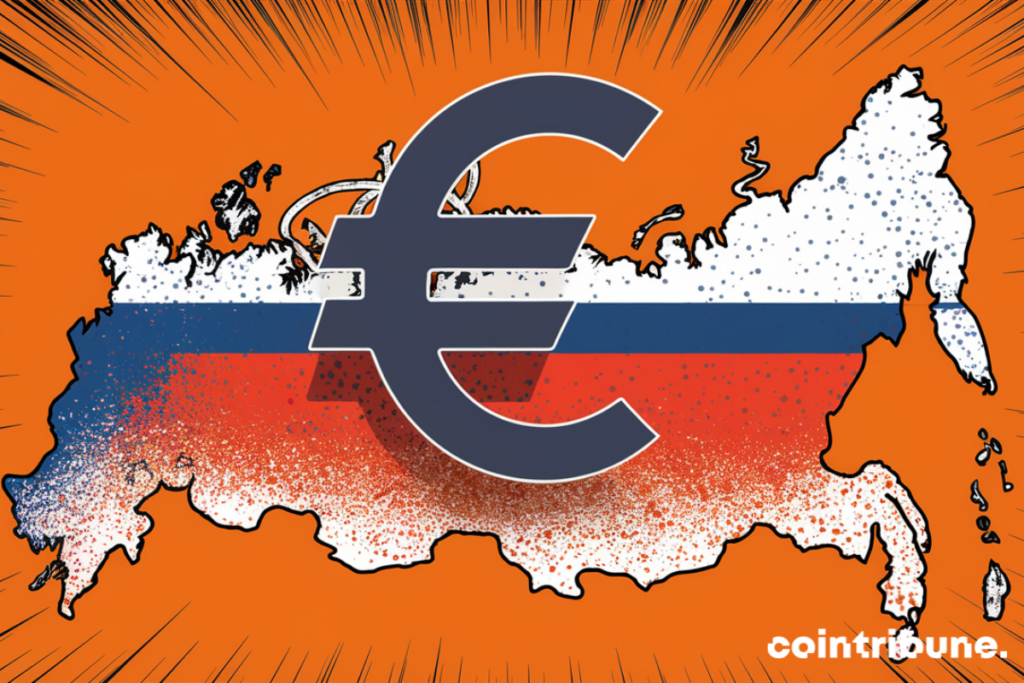FT reports a ‘clash’ over stealing Russia’s frozen assets. US & UK want to; EU has most 🇷🇺assets & more cautious. It would set a precedent: who’s next?! Indonesia🇮🇩 & Saudi Arabia🇸🇦 lobbied EU🇪🇺 capitals not to, fearing for their own reserves in the West. https://t.co/bonXZP1PsF pic.twitter.com/XAA6VrZItC
— Tony Norfield (@StubbornFacts) May 3, 2024
A
A
Saudi Arabia is worried about the seizure of Russian reserves
Wed 08 May 2024 ▪
6
min read ▪ by
Getting informed
▪
Payment
The future of the international monetary system is closely linked to Russian foreign exchange reserves frozen by the West. Bitcoin is lying in wait.

Saudi Arabia is worried
The international monetary system is at the heart of geopolitical tensions and much will depend on the fate of Russian foreign exchange reserves.
The Financial Times revealed on Monday that the Saudi Finance Minister expressed concern at the last G20 meeting. Do the G7 countries really intend to plunder these reserves to finance the war in Ukraine? Do they truly realize the consequences of such a radical action?
Saudi Arabia and OPEC member countries hold a substantial part of Western debt. An outright seizure of Russian reserves could challenge the international monetary system.
Riyadh, in fact, has already acted preemptively by drastically reducing its U.S. Treasury reserves. “The Saudis are very worried,” said a European official.
However, the appropriation of Russian foreign exchange reserves would essentially ruin Europe’s credibility. Indeed, the FT reports that only $5 billion has been frozen by the United States. Over $190 billion frozen are actually euros. The remainder consists of Swiss francs, yen, and so on.
This is why White House advisors are saying things like: “We have frozen the assets together; we would also like to mobilize them together”…
Nevertheless, G7 central bankers are squarely opposed. They are aware of the crucial role that foreign exchange reserves play in the international monetary system. Christine Lagarde has warned that “moving from freezing assets to confiscating them, then to disposition [could run the risk] of breaking the international order that we want to protect.”
Washington ready to sacrifice the Euro
At the end of May, the United States voted for a $61 billion budget to arm Ukraine. The funding law also grants the White House the right to seize Russian assets held by the United States.
But once again, such a measure would be painless for them. “They don’t have much to lose,” a European diplomat told the FT.
However, perhaps the United States is contemplating seizing the $770 billion in Chinese reserves… Treasury Secretary Anthony Blinken has recently threatened to disconnect some Chinese banks from the dollar.
In any case, outright seizure of Russian reserves no longer seems on the table. The United States now proposes unlocking a $50 billion loan that would be secured by the interest generated by the frozen assets ($2.5 billion per year).
This plan, however, poses a problem if the war ends in the near future. “It may be that Russia would agree to territorial concessions to Ukraine in return for its frozen funds. You cannot do that if these assets are being used as collateral for a loan,” said a German official.
The EU would rather directly use the interest generated by Russian assets to jointly purchase weapons for Ukraine. This would be far less risky than the direct appropriation of Russian reserves.
The old continent is wary of anything that could negatively affect the Euro’s status as an international reserve currency. The single currency accounts for 22% of international transactions and 20% of foreign exchange reserves.
Counteracting through BRICS
Russia could retaliate by seizing European assets in Russia. Foreign companies hold assets in Russia valued at $285 billion according to a study by Armin Steinbach, professor at HEC.
The largest part (~$105 billion) belongs to European companies. This is more than three times the $36 billion in assets held by American companies.
More broadly, Russian retaliation will be mainly channeled through the BRICS and the thirty nations wishing to join the club. Russia will chair the group in 2024 and plans to accelerate the de-dollarization process.
However, trading in national currencies has its limits. For example, India has little to sell to Russia in exchange for its oil. Moscow, therefore, stopped accepting the rupee for payment.
The question of the dollar and euro replacements remains, to this day, unresolved. Gold, of course, is in favor, but it is not a payment system. Metal does not travel through fiber.
If Vladimir Putin truly wants to take away the United States’ exorbitant privilege, it will have to be with a currency at the cutting edge of technology.
A world where all nations trade on an equal footing requires a neutral currency and payment system. Bitcoin is cut out for this role as it is a stateless currency and an uncensorable payment network that everyone is free to participate in.
The protection of the petrodollar is largely responsible for the current geopolitical tensions. It’s time to forge a new international monetary system and bitcoin can become a master piece of it.
Maximize your Cointribune experience with our "Read to Earn" program! For every article you read, earn points and access exclusive rewards. Sign up now and start earning benefits.
A
A
Bitcoin, geopolitical, economic and energy journalist.
DISCLAIMER
The views, thoughts, and opinions expressed in this article belong solely to the author, and should not be taken as investment advice. Do your own research before taking any investment decisions.